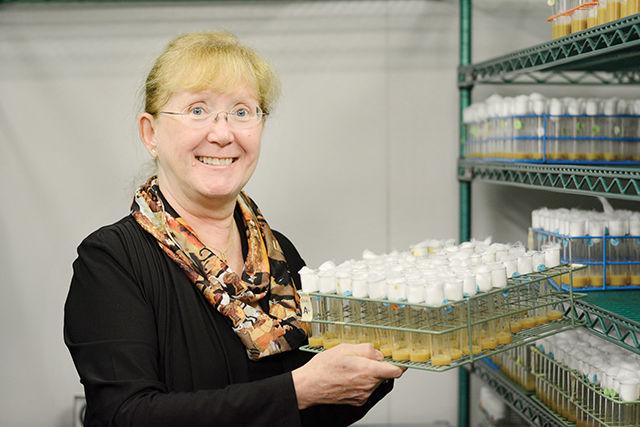This summer, the science labs at N.C. State and UNC-Chapel Hill will be full of curious teachers learning about ways to prevent the spread of food-borne illness in kitchens, restaurants and all around the nation as well as studying ways to manipulate the microbiomes in the chicken’s intestines. With the help of researchers, the Kenan Fellows Program and the 4-H Youth Development Program, students will be educated on ways to prevent the spread of salmonella through a formulated curriculum as well as other interactive activities.
Hosni Hassan, a professor in the Department of Microbiology and Matthew Koci, an assistant professor in the Department of Poultry Science, are teaming up to begin research on the poultry at the Dearstyne Avian Health Center. Andrea Azcarate-Peril, an assistant professor at the Department of Cell Biology and Physiology at UNC-Chapel Hill will be directing the analysis of bacteria at the Microbiome Core Facility at UNC’s School of Medicine.
“Not many people work with poultry … at least in terms of infectious diseases … and figuring out why certain diseases affect humans and certain diseases affect birds has been an ongoing question for us,” Koci said.
Preventative salmonella research specializes in microbiomes—the bacteria, fungi and viruses located in the intestines of animals. These microbiomes are the cause of many food-borne illnesses or diseases. According to the Center for Disease Control and Prevention, an estimated 1.2 million cases of salmonella poisoning occur annually in the United States.
The researchers are also asking the questions: Why can chickens have salmonella bacteria in their stomach and not suffer side effects from it? Why are only humans getting sick from the salmonella bacteria? Through their research, they aim to answer that question. The first round of experiments started four weeks ago.
“It has been a two to three year project of putting these things together and figuring out how to get this research off the ground,” Koci said. “Good research leads to more questions than answers, so whether there is ever a final chapter to this whole book, who knows?”
The Kenan Fellows Program is set to accept applications from nine eager teachers interested in learning more about the research. There will be an elementary, middle and high school teacher in each lab, shadowing a researcher to learn more about the topic of poultry science. The program will be treated like a 40 hour a week job during the summer for the researchers and teachers.
“We want to help them grow professionally and provide them the opportunity to take that real world experience to the classroom,” said Craig Tucker, program coordinator for the Kenan Fellows Program.
The teachers will use their knowledge to formulate a STEM (Science, Technology, Engineering and Math)-based lesson plan to educate students on food safety. The curriculum for older students will also inspire an interest in microbiology, as well as other research in the science field.
“Our teachers are coming from a variety of backgrounds, subject levels … we believe that STEM isn’t just one discipline, it is a way of thinking. This is what we will be instilling in these Fellows,” Tucker said.
The training will also be turned into a learning experience for a K-12 environment outside of the classroom. The Intellemedia Group at N.C. State emphasizes advanced learning technologies by human-computer interaction. The group is creating specific gaming software linked to the study called Crystal Island-Outbreak that will show students a salmonella outbreak, and its goal will be to stop it.
The Raleigh chapter of the 4-H development program, headed by the College of Agriculture and Life Sciences, is teaming up with the Kenan Fellows with the aim of developing materials and educational activities that can be used in the classroom as well as informal settings, such as after-school programs and camps.
“4-H has content specialists in all areas of the college such as entomology or horticulture. When a content piece comes to us, we surround it with very responsible individuals,” Amy Chilcote, a 4-H program manager, said. “We look from the community perspective, the youth perspective and the private industry’s perspective … so that the curriculum is developed very holistically.”
The pilot program will take place in the Summer of 2014, certain 4-H agents throughout North Carolina will come together and receive training provided by Kenan Fellows to test out the various aspects to the program. In 2015, when the pilot program is wrapping up, the program will be sent to the national 4-H level for review before being dispersed into schools.
“There are a lot of program opportunities for students to compete on the 4-H level. There is the poultry judging, the poultry outdoor cookery … they could be looking from the standpoint of preventing cross contamination of salmonella. The kids get to do those kinds of things as well,” Chilcote said.
The diverse research and education opportunity is being is funded by a $2.5 million U.S. Department of Agriculture grant for North Carolina schools.
“They may get sweaty and dirty and all that fun stuff but that is just part of it, and from that they grow,” Tucker said.




